May marked a productive period for Tilga Art Fund supported resident Katesi Kalange who spent her time in Lagos investigating the possibility of integrating non-biodegradable materials into urban building landscapes. Following her community cleaning drive held at the waterside community of Bariga with Peter Abayomi (Eran Jije Project), she experimented with combining the found waste products with materials including silicone, sisal fibre, and raw clay, to create a series of prototype floor tiles in collaboration with Lagos-based sculptors Adeoti Afeez, Henry Unuigboje, Mr. Ato Arinze and his apprentices. To drive the project forward, Katesi engaged WeCyclers, a Lagos-based social enterprise that provides recycling services in the city, and BASF, a socially conscious chemical engineering company. This exchange culminated in the production of a batch of around twenty tiles made from recycled polyethene and glass.
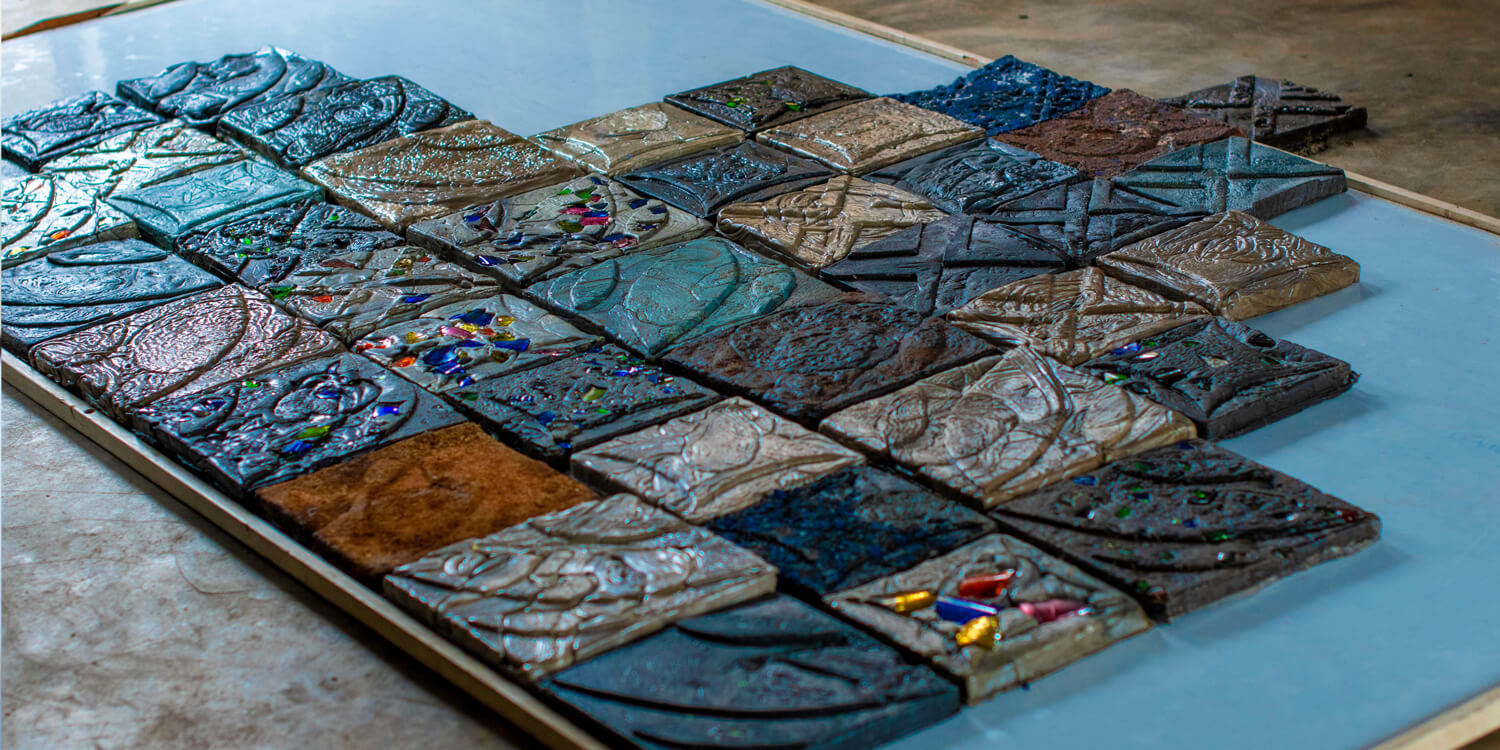 Katesi's tiles made from recycled materials alongside prototypes presented in Bariga.
Katesi's tiles made from recycled materials alongside prototypes presented in Bariga.
To conclude her residency, Katesi facilitated two iterations of her residency presentation METAmorphosis. At G.A.S. Lagos, she was joined by a panel of her collaborators, and together they shared their process and findings. The second event in the series was held at the site of her cleaning drive in Bariga. Here Katesi reconvened community members for a workshop uncovering her techniques alongside an installation of the upcycled prototype floor tiles.
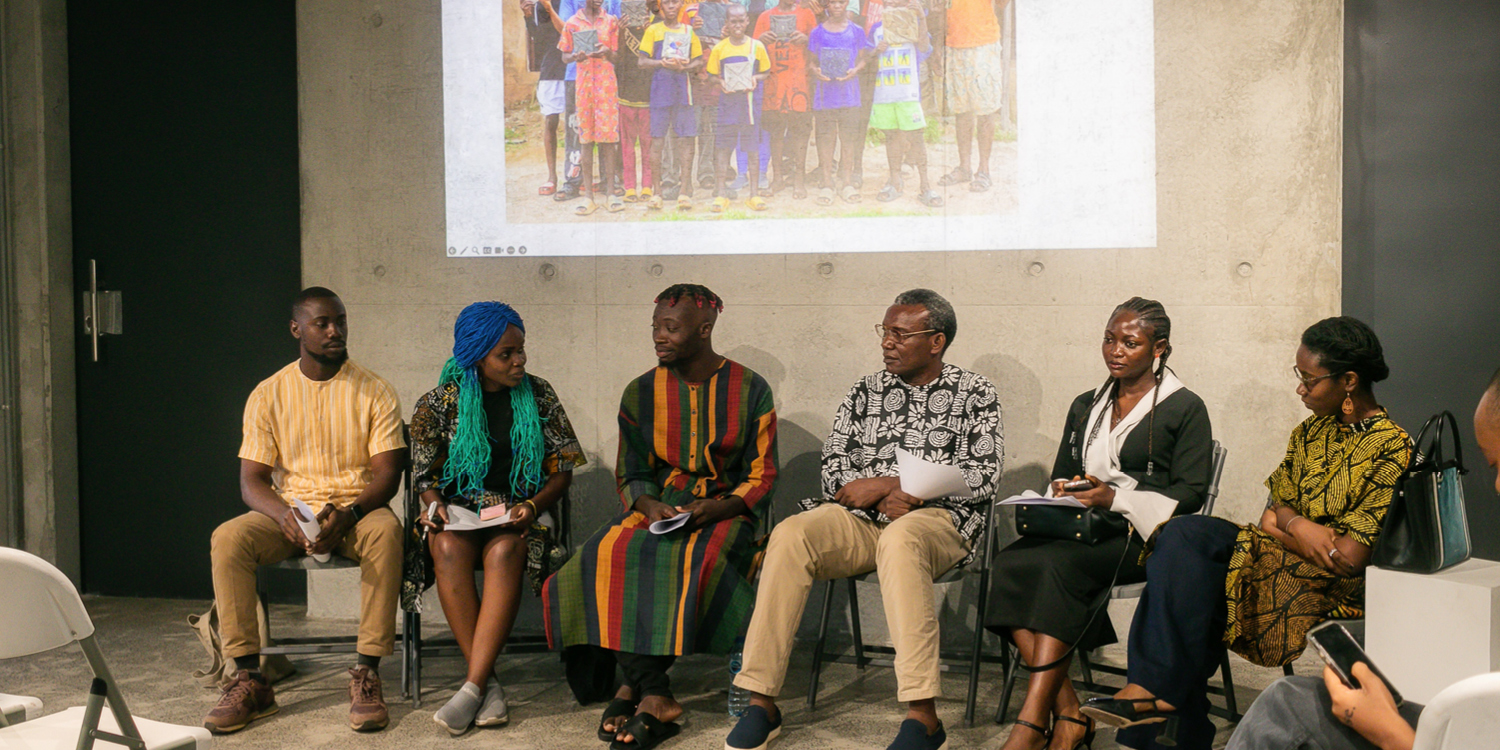
From L-R: METAmorphosis panellists Azeez Afeez, Katesi Kalange, Peter Abayomi, Ato Arinze, Rafiat Kikelomo Bashiru and Boluwatito Aiyepola.
G.A.S. Fellow Amanda Iheme spent the final month of her residency deepening research on Nigerian tropical modernism juxtaposed with the lived realities within the contemporary "affordable" Nigerian housing market. Her research confronted the paradox of architectural innovation amidst pervasive undignified living conditions, providing a critical analysis of the socio-economic factors contributing to this dichotomy.
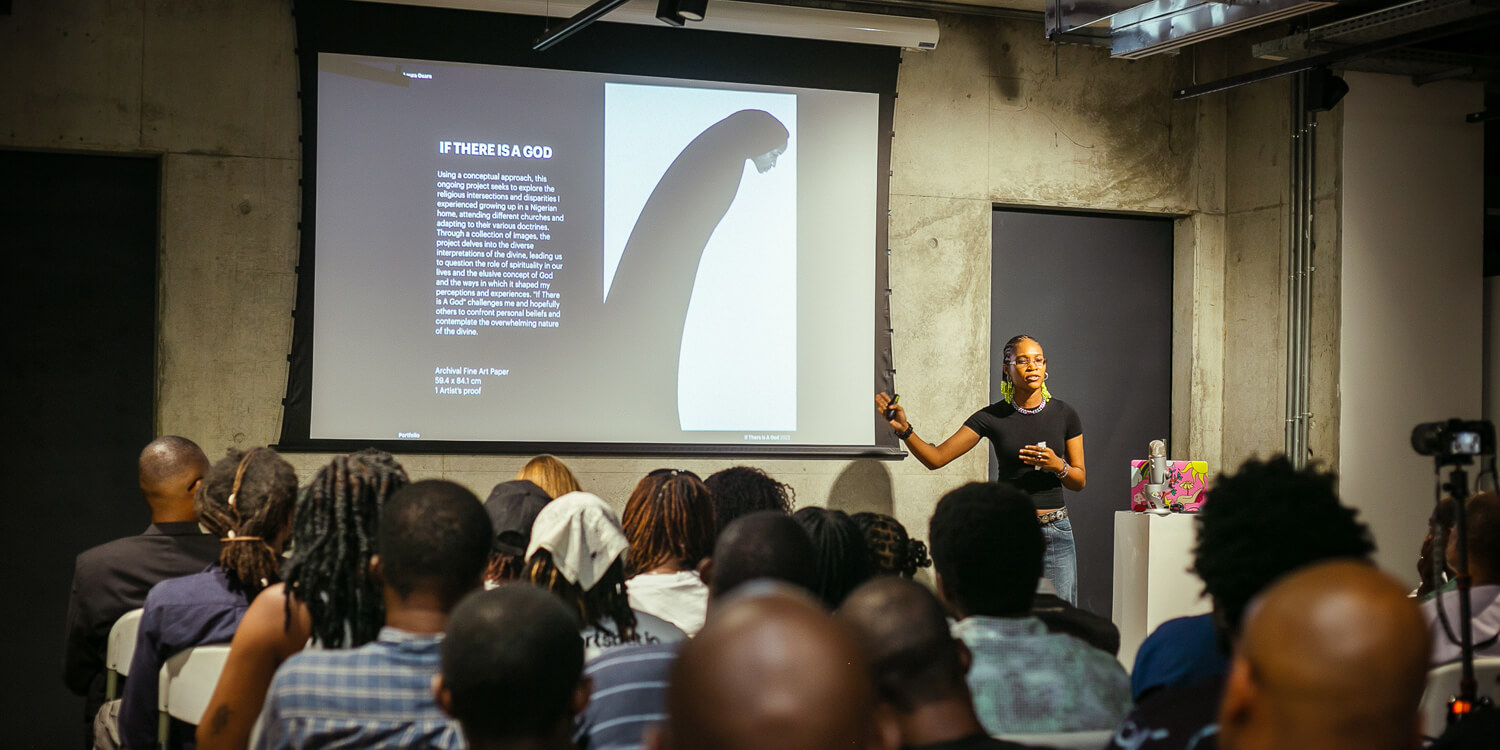
Self taught photographer Laura Osare presenting her practice during Amanda's event Focus on Four.
Engaging meaningfully with the local community had always been one of Amanda’s residency aspirations. On 17th May she hosted Focus on Four, a photography showcase that spotlighted the work of local practitioners Alexander "Lex Ash" Ashimole, Laura Osare, Nengi Nelson, and Ọlájídé Ayẹni. The event interrogated their explorations of form, space, urban environments, and personal and collective identities. In the lead-up to Focus on Four, the participating photographers took part in virtual mentoring sessions with Amanda designed to strengthen their vocabulary in discussing their practice and developing their capacity to present their work.
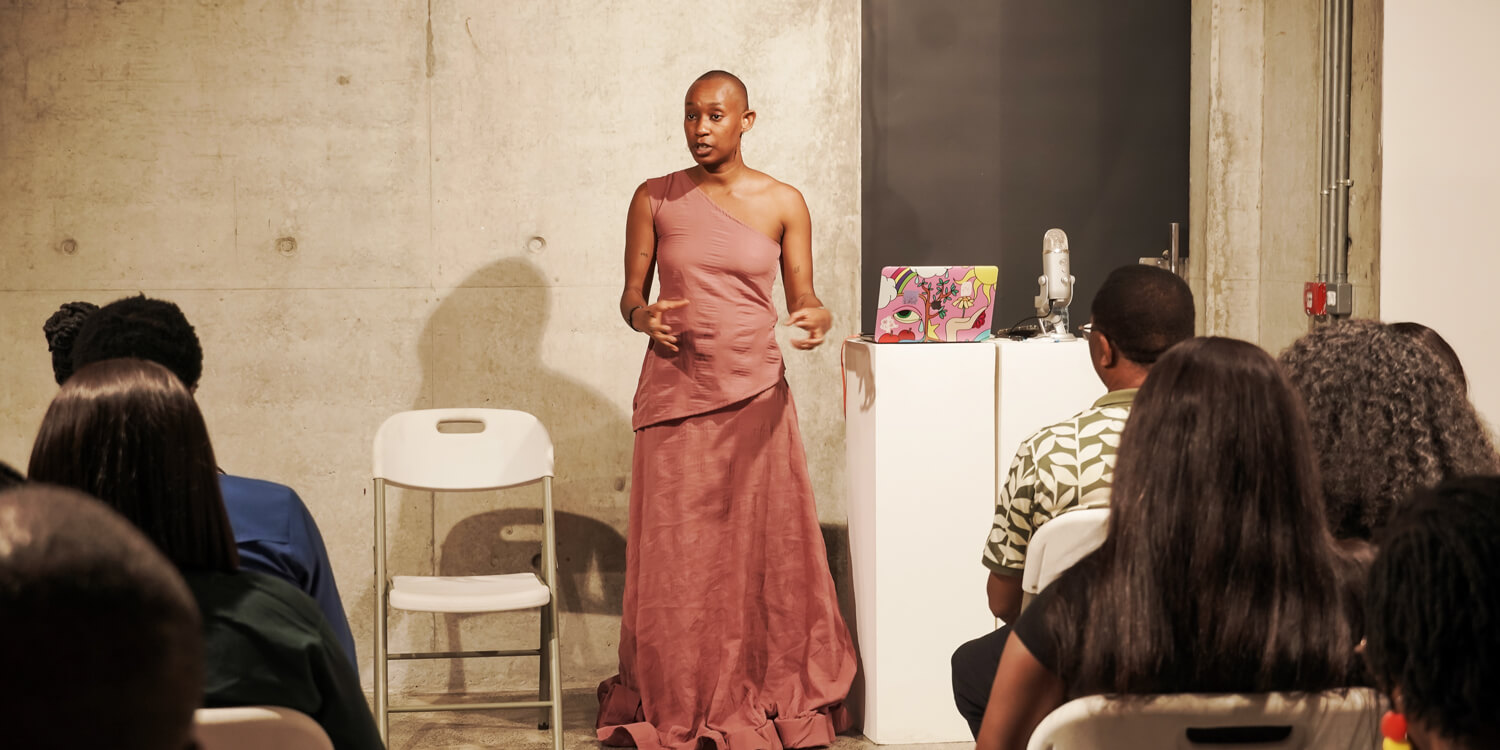 Amanda's residency retrospective presentation Ugwu-001.
Amanda's residency retrospective presentation Ugwu-001.
To mark the end of her residency Amanda shared her research and findings at G.A.S. as part of a residency retrospective titled Ugwu-001. Drawing from the Igbo word "ugwu," meaning "dignity," this event divulged the core of Amanda's study focus during this period and its rigorous examination of Nigeria's affordable housing crisis.
May also marked the arrival of our seventh Tiwani-supported resident Dawit L. Petros, who spent his month in Lagos focusing on the production of both photographic and moving image works alongside conducting archival research related to Nigerian cinema, Lagos’ migration patterns, and historical maps of conflict zones. Throughout his residency, Dawit facilitated daily workshops with students from the QDance Center. Together, they created experimental movement pieces that imagined photographs of the city's network of tangled electrical wires as scores, and generated performances that translated the essence of the city, through the embodied knowledge of its inhabitants, into movement.
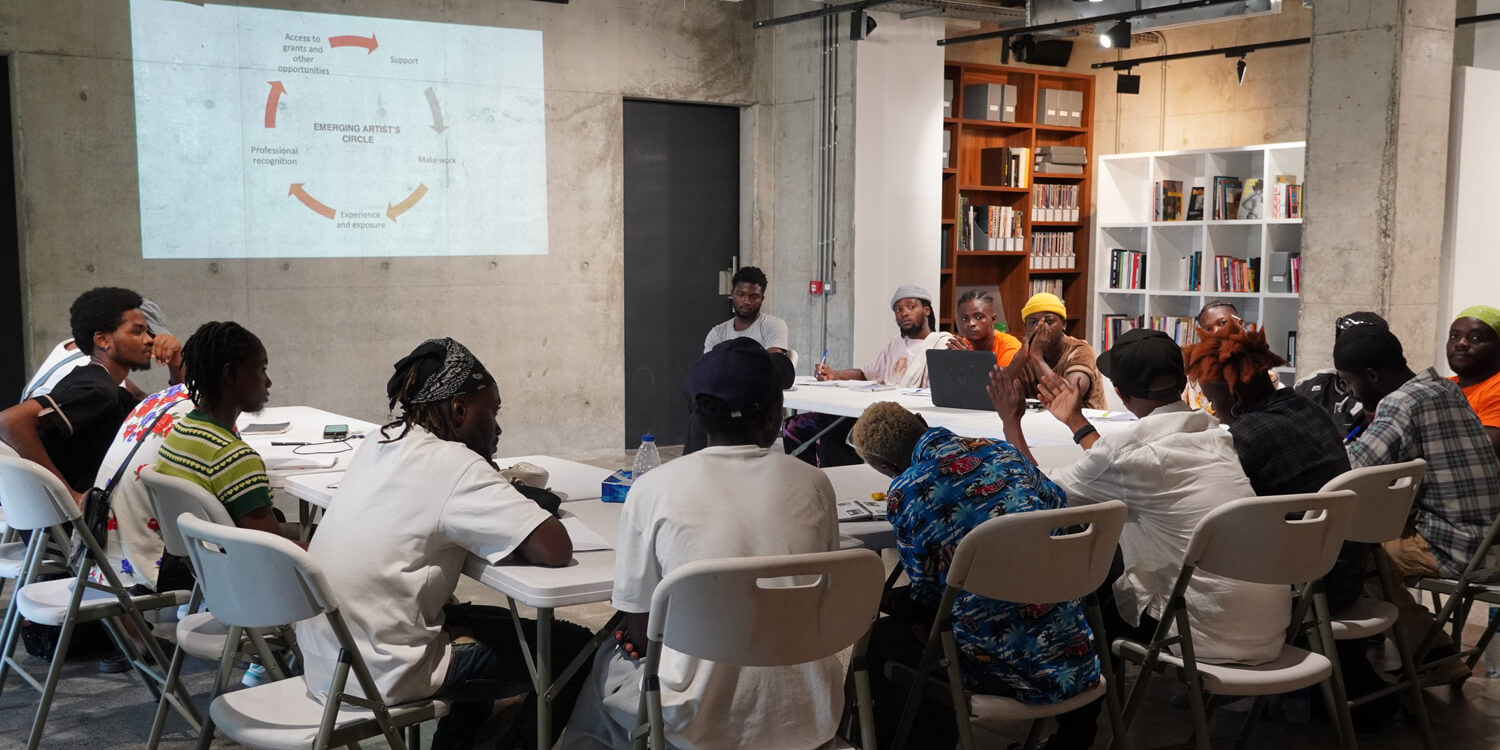 Dawit's Professional Practice as Research workshop with members of QDance Centre.
Dawit's Professional Practice as Research workshop with members of QDance Centre.
The workshops were supported by professional development opportunities organised by Dawit. One such example was the Professional Practice as Research session that took place at G.A.S. Lagos and acted as a vehicle to demystify the institutional and professional frameworks that shape contemporary art practice. To conclude his residency, Dawit hosted Ekphrasis at Tiwani Contemporary, Lagos. The immersive public cinema experience was delivered in collaboration with 14 movement-based artists, musicians, and singers from the QDance Centre. The diverse presentation included a display of works in progress alongside experimental public cinema screenings, live performances, and a public discussion.
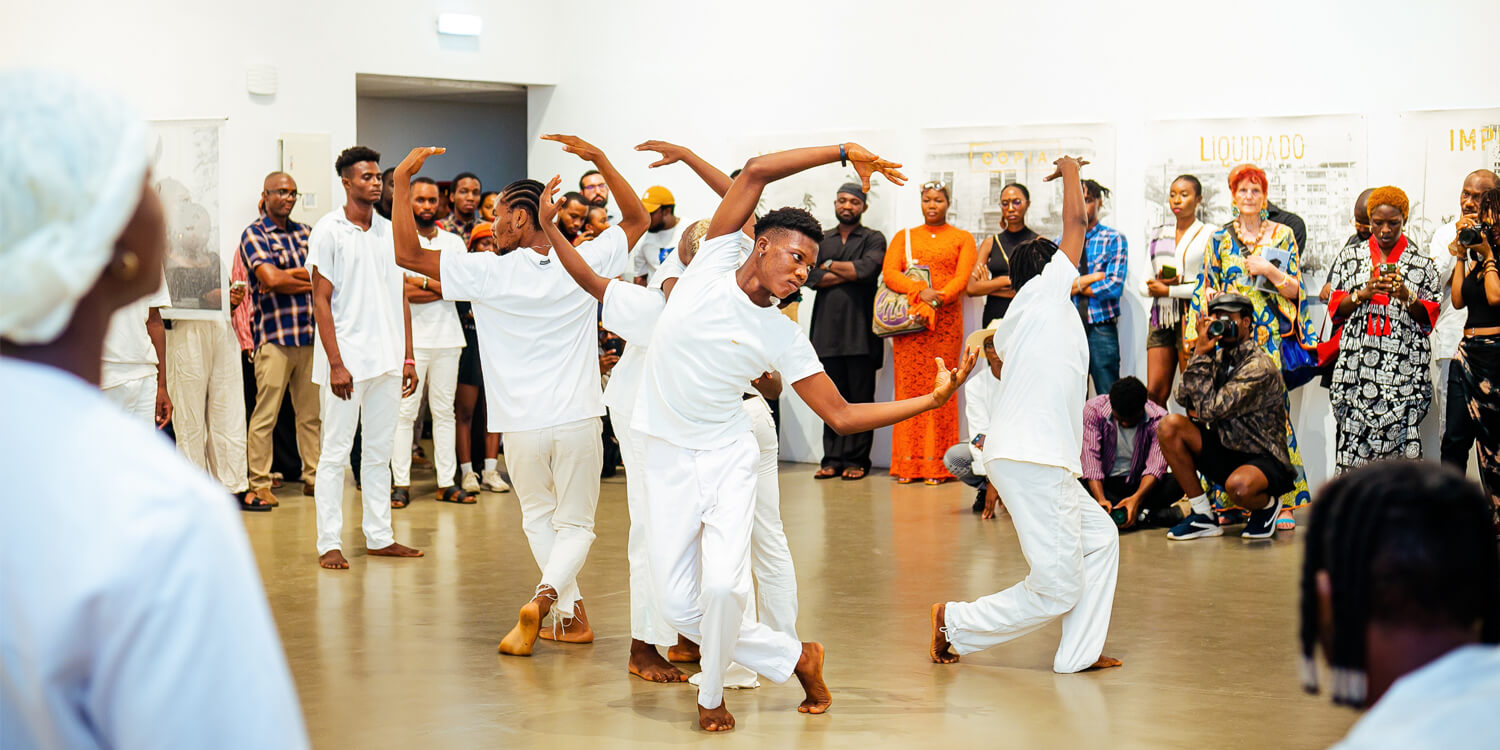 Members of QDance Centre performing at Ekphrasis hosted at Tiwani Contemporary, Lagos.
Members of QDance Centre performing at Ekphrasis hosted at Tiwani Contemporary, Lagos.
In June G.A.S. Foundation announced the launch of Re:assemblages, a roaming body and multi-year cultural development programme designed to platform new, critical questions focused on the preservation and creative potential of African art libraries. The collaborative project was developed in response to the wealth of material housed in the G.A.S. Library and Picton Archive and its rare constellation of African-published journals, magazines, and manuscripts.
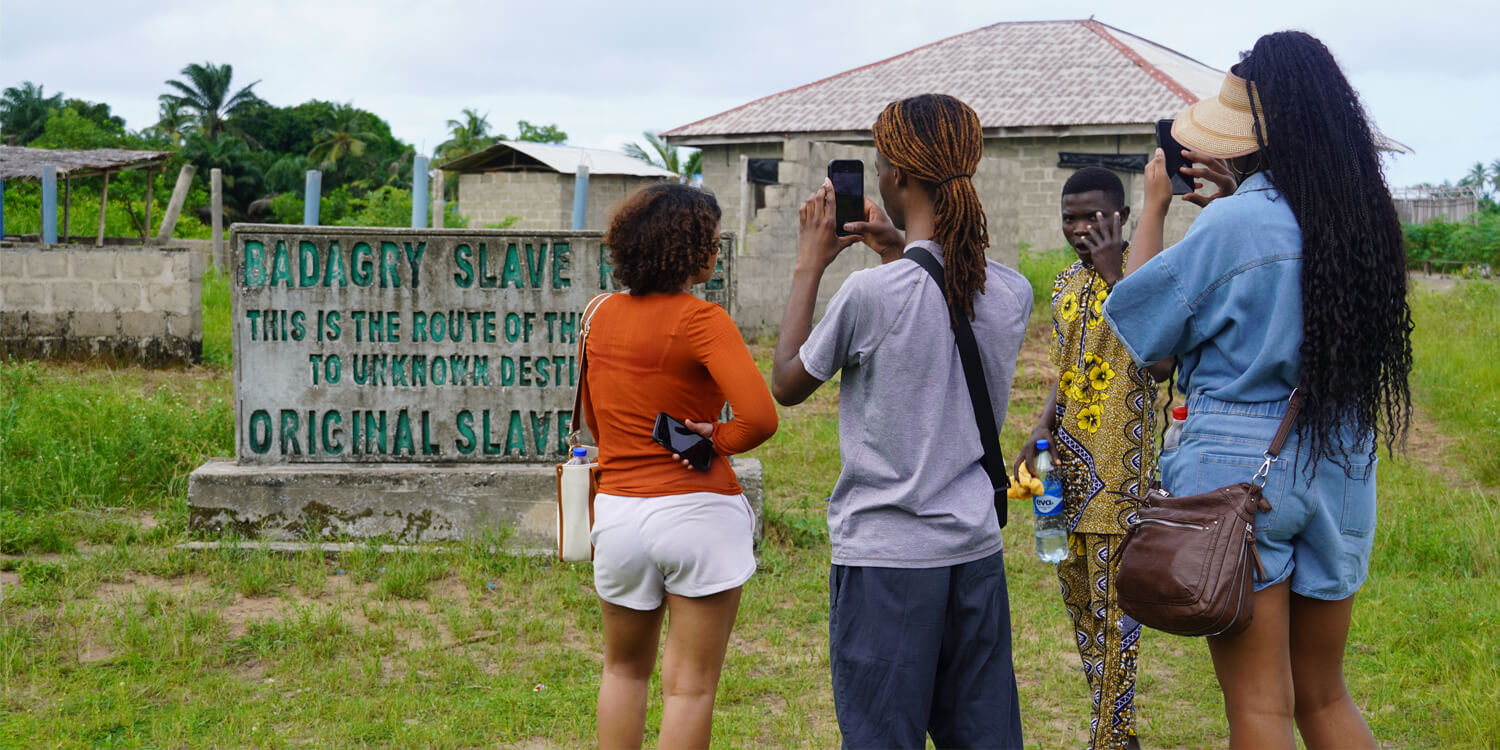 From L-R: Robyn Simpson, Neil Grasty and Amaya Loubeau during a field trip to Badagry Slave Port.
From L-R: Robyn Simpson, Neil Grasty and Amaya Loubeau during a field trip to Badagry Slave Port.
The first live strand of Re:assemblages, titled Annotations, is a six-month project that explores major African cultural festivals and their dual nature as historic events and repositories of postcolonial pan-African encounters. Critical to the project is a seven-week Annotations residency and research programme designed to assemble a pedagogical timeline and archival resource on twentieth-century pan-African festivals.
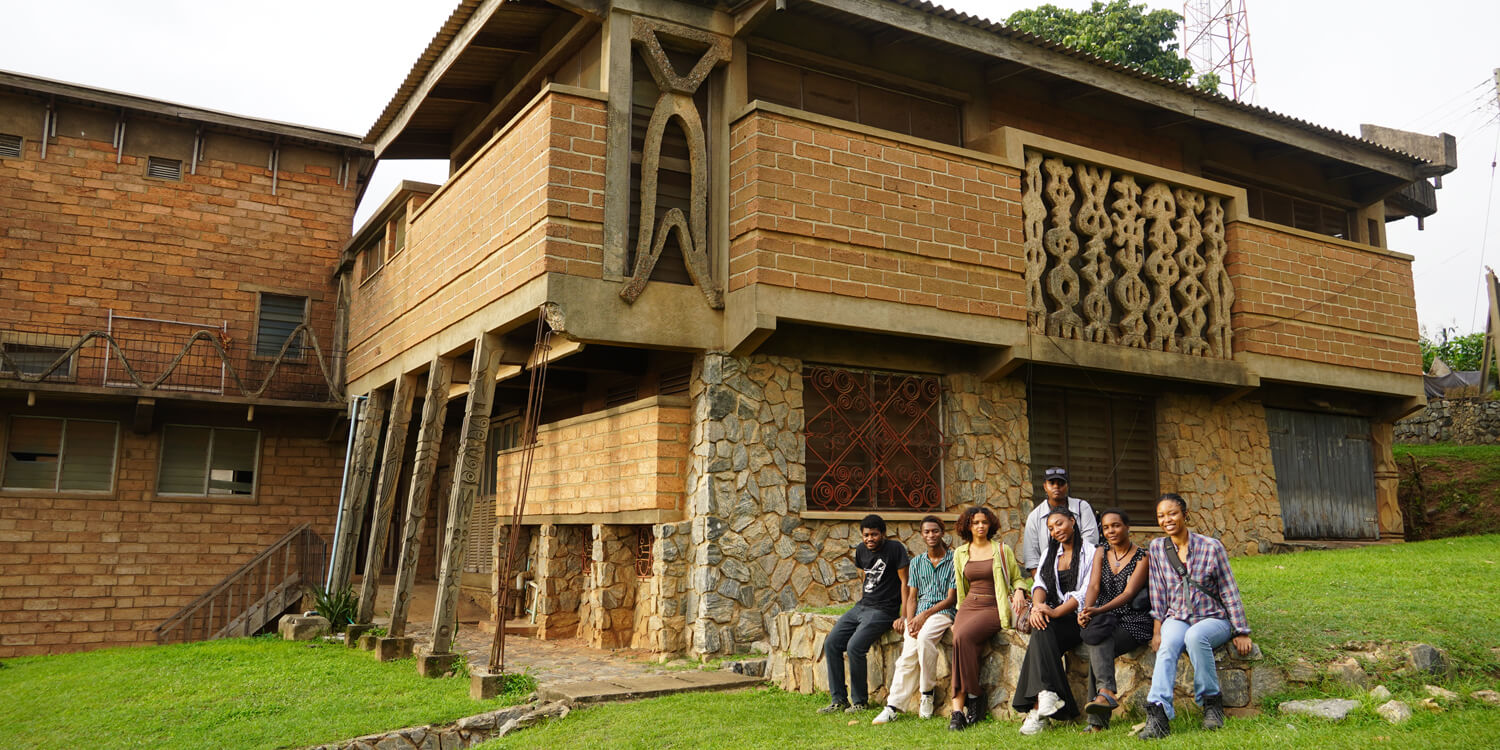 The full cohort of Annotations Research Associates with Library and Project Coordinator Tomiwa Adegbola at the New Culture Studio, Ibadan.
The full cohort of Annotations Research Associates with Library and Project Coordinator Tomiwa Adegbola at the New Culture Studio, Ibadan.
The Annotations residencies were segmented into an internship programme developed in partnership with Spelman College, and the Atlanta University Center Art History + Curatorial Studies Collective (AUC Collective). Selected following a call for applications within the collective, Amaya Loubeau, Neil Grasty, and Robyn Simpson emerged as recipients of the internship and arrived in Lagos at the beginning of May. Running parallel and in direct collaborative dialogue with the internship was G.A.S. Foundation’s Annotations Research Associate Programme. The opportunity for three Lagos-based practitioners foregrounds the Foundation's dedication to building capacity within the local industry in Lagos. Curators Adeyosola Adeniran and Ufuoma Ogbemudje, and independent archivist, Osayame Emokpae-Ozoro were selected to participate following an open call.
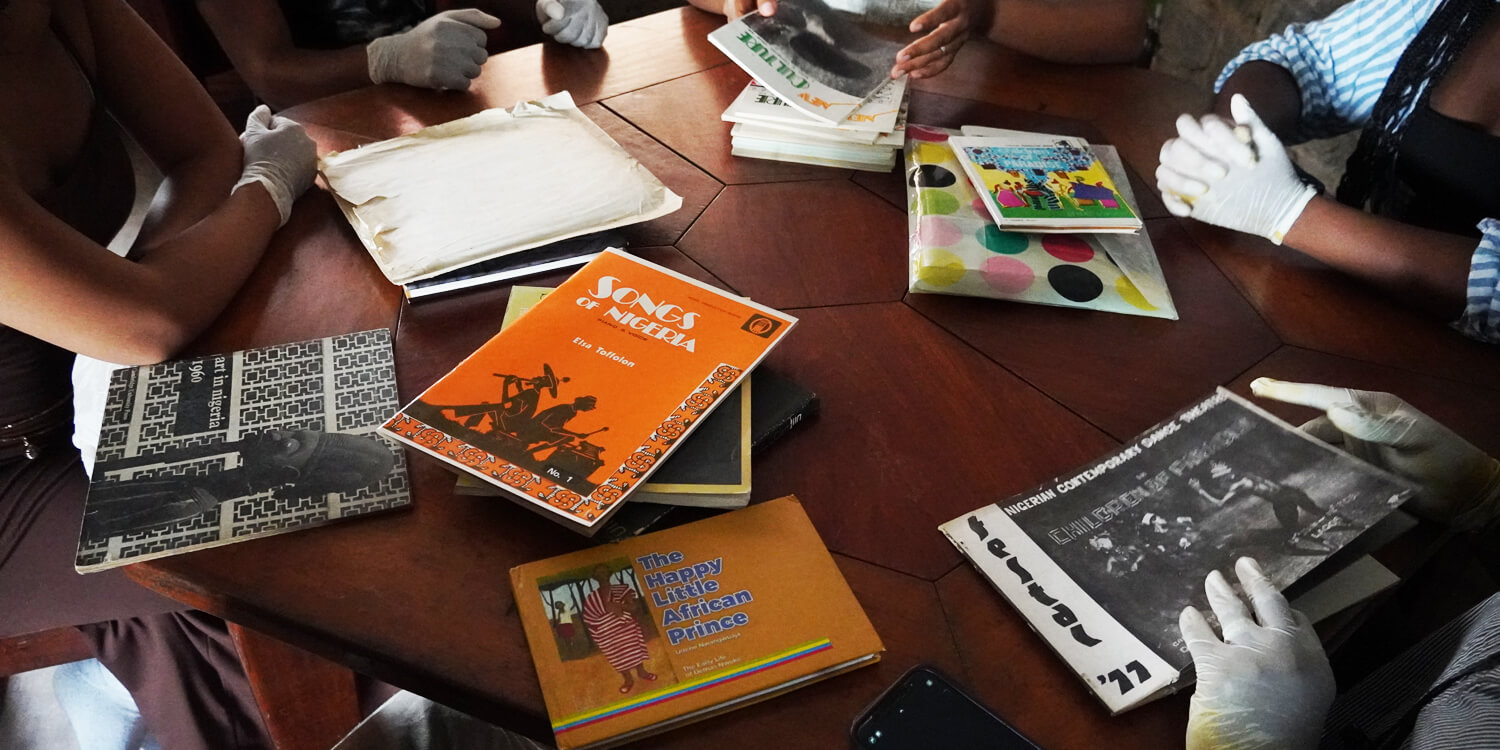 The Annotations Research Associates exploring archival printed FESTAC 77' paraphernalia during a research trip to New Culture Studio, Ibadan.
The Annotations Research Associates exploring archival printed FESTAC 77' paraphernalia during a research trip to New Culture Studio, Ibadan.
During the first few weeks of the project, the group undertook a series of research trips to The Centre for Black and African Arts and Civilization (CBAAC), the Arthur Mbanefo Digital Research Centre (AMDRC) at the University of Lagos (UNILAG), the National Museum, the Yaba Art Museum, National Theatre, and New Culture Studio, Ibadan amongst others. The Associates were supported by mentoring sessions facilitated by Archival Consciousness, and programme curators Naima Hassan and Maryam Kazeem. As the programme continues to develop the Associates plan to host a series of events that will act as a vehicle for both uncovering their findings and creating a space for discursive exchange and collaborative learning.